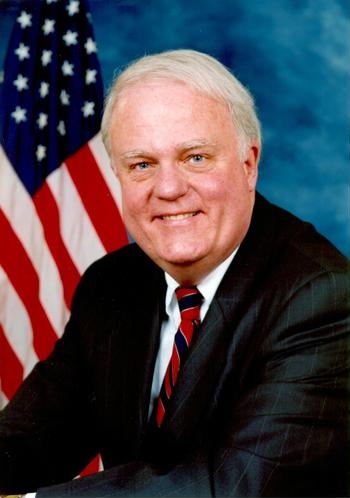Sensenbrenner, Johnson Introduce SOFA Act to Combat Opioid Epidemic
Washington, D.C.— Today, Congressman Jim Sensenbrenner (R-WI-05) and Senator Ron Johnson (R-WI) reintroduced companion versions of the Stopping Overdoses of Fentanyl Analogues (SOFA) Act. This legislation would help to curb the opioid epidemic by outlawing new fentanyl variants—known as analogues—as they are discovered.
Rep. Sensenbrenner: “Way too many Wisconsin families have been forever changed by a surge in overdose deaths stemming from fentanyl and its analogues. Congress must act as the opioid epidemic continues to grow. The SOFA Act will give law enforcement the necessary tools to fight back against the proliferation of fentanyl analogues in our communities, permanently closing loopholes in the law. I thank Senator Johnson, Lauri Badura, and Dr. Timothy Westlake for working tirelessly with me on this issue.”
Senator Johnson: “Communities across Wisconsin and America have been devastated by the epidemic of opioid overdoses. The SOFA Act will close a loophole in current law that is being exploited by illegal drug manufacturers. The bill will also give law enforcement the tools to quickly schedule fentanyl analogues as they are identified, preventing these drugs from sneaking around the law.”
Background on the SOFA Act:
Fentanyl is currently classified as a Schedule II controlled substance used to treat cancer patients. However, it is dangerous and can be lethal outside of the careful supervision of a doctor. Fentanyl abuse is one of the leading contributors to the opioid epidemic.
A new chemical compound, known as an analogue, is created by modifying one small piece of the chemical structure of fentanyl. These compounds fall into a legal loophole and contribute to the alarming rate of opioid-related deaths in the U.S. The DEA has temporary scheduling authority that will expire in February 2020 absent congressional action.
Analogue producers will continue developing new variations, and law enforcement agencies must have the tools to adapt to these changes. Under current law, DEA scheduling practices are reactive in nature. Typically, fentanyl analogues are only scheduled after they have resulted in deaths across multiple states.
The SOFA Act permanently closes the legal loophole by adding nineteen known fentanyl analogues to the Schedule I list. It also gives the DEA the authority to immediately schedule new fentanyl analogues as they are discovered, making enforcement and scheduling procedures more proactive.
The bill shares the acronym of an organization started by Oconomowoc, WI resident Lauri Badura, who lost her son Archie to an overdose in 2014. Shortly after, she founded the faith-based non-profit Saving Others for Archie, Inc. to raise awareness and fight the opioid epidemic.
NOTE: This press release was submitted to Urban Milwaukee and was not written by an Urban Milwaukee writer. While it is believed to be reliable, Urban Milwaukee does not guarantee its accuracy or completeness.
More about the Opioid Crisis
- Baldwin Demands Trump Admin Reverse Billions in Cuts From Opioid and Mental Health Programs - U.S. Sen. Tammy Baldwin - Jan 14th, 2026
- Fox Valley Nurse Practitioner Sentenced to Federal Prison for Unlawful Prescribing - U.S. Department of Justice - Dec 29th, 2025
- County Executive David Crowley Hosts Roundtable on Combating Opioid Crisis and Saving Lives in Wisconsin - David Crowley - Dec 16th, 2025
- Co-Chairs Criticize DHS For Lack of Plan, Transparency with Opioid Settlement Funds - Joint Committee on Finance - Oct 21st, 2025
- Opioid Treatment Program Opens First Clinic in Milwaukee - Isiah Holmes - Oct 20th, 2025
- County Executive Crowley, Chairwoman Nicholson Sign Legislation Approving $9 Million for Efforts to Compat the Opioid Crisis - David Crowley - Aug 15th, 2025
- How Are State’s Local Governments Spending Opioid Settlement Payouts? - Addie Costello - Aug 4th, 2025
- MKE County: How County Will Spend $9 Million in Drug Settlement Funds - Graham Kilmer - Jul 29th, 2025
- Milwaukee County Executive David Crowley Announces Over $9 Million for Initiatives to Combat Opioid Epidemic - David Crowley - Jul 17th, 2025
- AG Kaul, 45 Other Attorneys General Plan to Join $720 Million Settlement with Eight Opioid Drug Makers - Wisconsin Department of Justice - Jul 14th, 2025
Read more about Opioid Crisis here






















